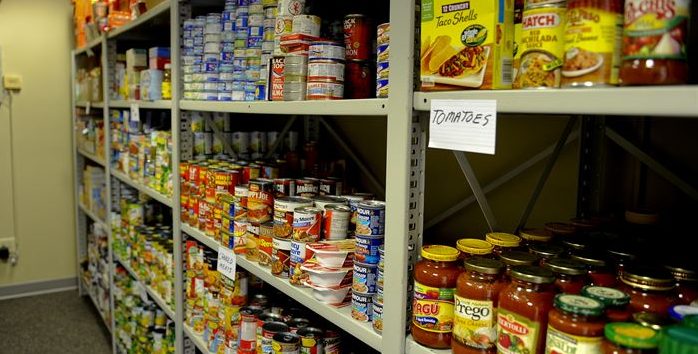[ad_1]
Those facing food insecurity are twice as likely to have unsatisfactory health and may skip medical and dental care in order to afford food.
That’s according to a new statewide survey by the New York Health Foundation, whose research looked at the daily lives and struggles of food-insecure compared to food-secure New Yorkers.
“When we listen to hungry New Yorkers, it’s clear that we cannot have good health without access to affordable and nutritious food,” David Sandman, president and CEO of NYHealth, said in a statement about the survey.
“New Yorkers who struggle to feed themselves and families make perilous choices between putting food on the table, getting health care and filling prescriptions, and paying for other basics like rent and gas,” he added.
NYHealth developed and commissioned the statewide online survey, which was conducted by the research firm Luminas. A total of 1,507 New York adults completed the survey, which was available in both English and Spanish. Food insecurity was classified using a validated tool from the U.S. Department of Agriculture.
The survey found that as many as 2.1 million New York residents were food insecure pre-pandemic. Now, with food prices skyrocketing, experts say even more people struggle with food insecurity.
According to the survey, food-insecure New Yorkers are nearly nine times as likely to report difficulty obtaining food as their food-secure peers. And 21% delay or skip medical care, while 13% delay or do not purchase prescription medication.
To afford food, 65% buy cheaper food and 49% stretch food/eat less; and 29% visit a food pantry/soup kitchen.
Nearly 90% of New Yorkers who participate in WIC and SNAP say the benefits are easy to use, but not all food-insecure individuals enroll or are eligible: 28% of food-insecure New Yorkers did not participate in any benefits or emergency food program.
Meanwhile, New Yorkers overwhelmingly support policy solutions that could help alleviate food insecurity. More than 80% of food-secure New Yorkers and 90% or more of food-insecure New Yorkers support making school lunch free for all students, streamlining food benefit applications, and making it easier for families to use SNAP benefits to purchase food online.
“Good health requires more than health care,” Julia McCarthy, senior program officer at NYHealth, said in a statement. “New Yorkers want action from policymakers to improve food security, and that starts by listening to the voices of those who are directly affected by hunger.”
The report offers recommendations for both policymakers and health care providers. Policy recommendations include making universal free school meals permanent; increasing outreach for SNAP and WIC and making the application and recertification processes easier; and working with federal partners to cover the costs of online grocery delivery. Health care providers can implement screening and referral processes for food insecurity and support Food Is Medicine interventions like medically tailored meals.
[ad_2]
Image and article originally from libn.com. Read the original article here.

